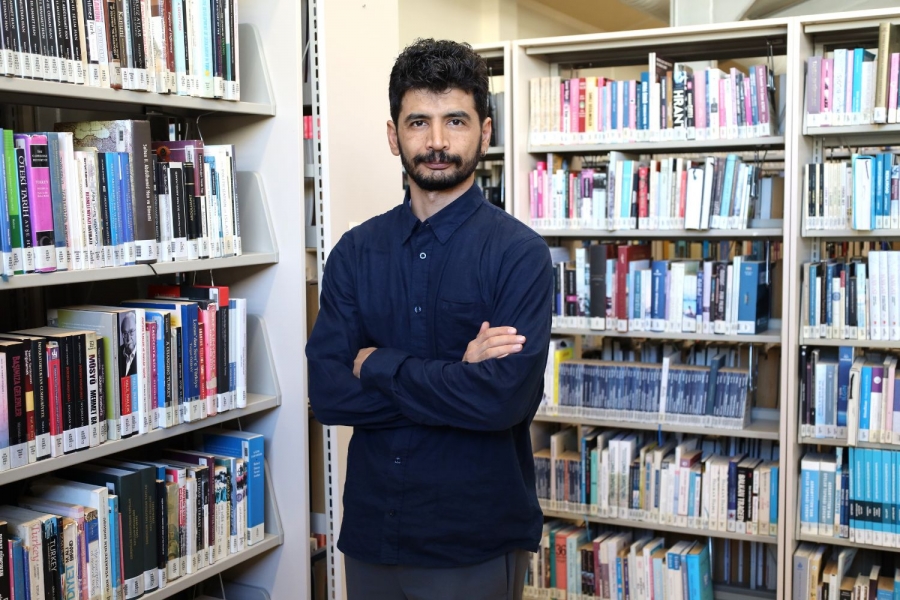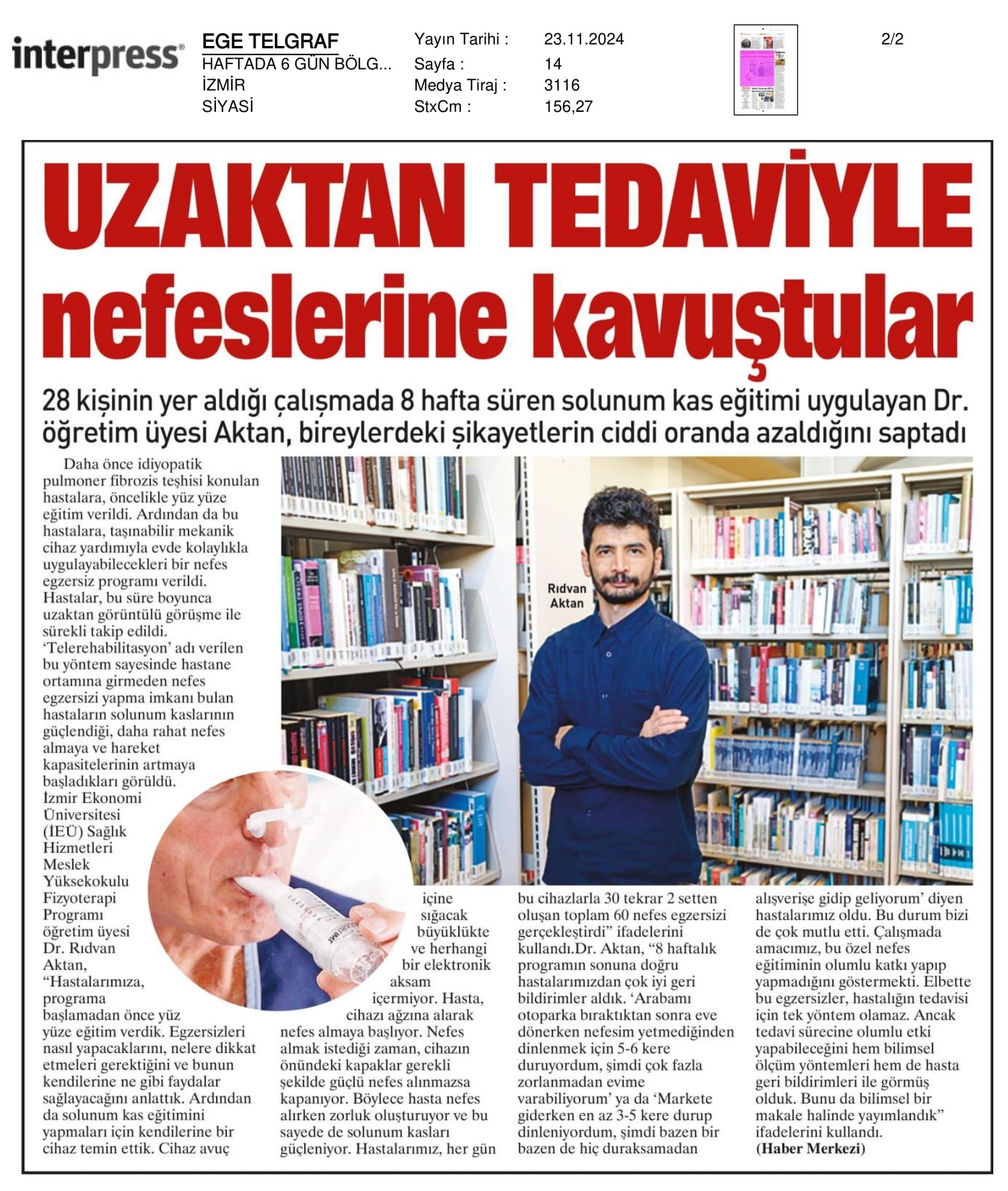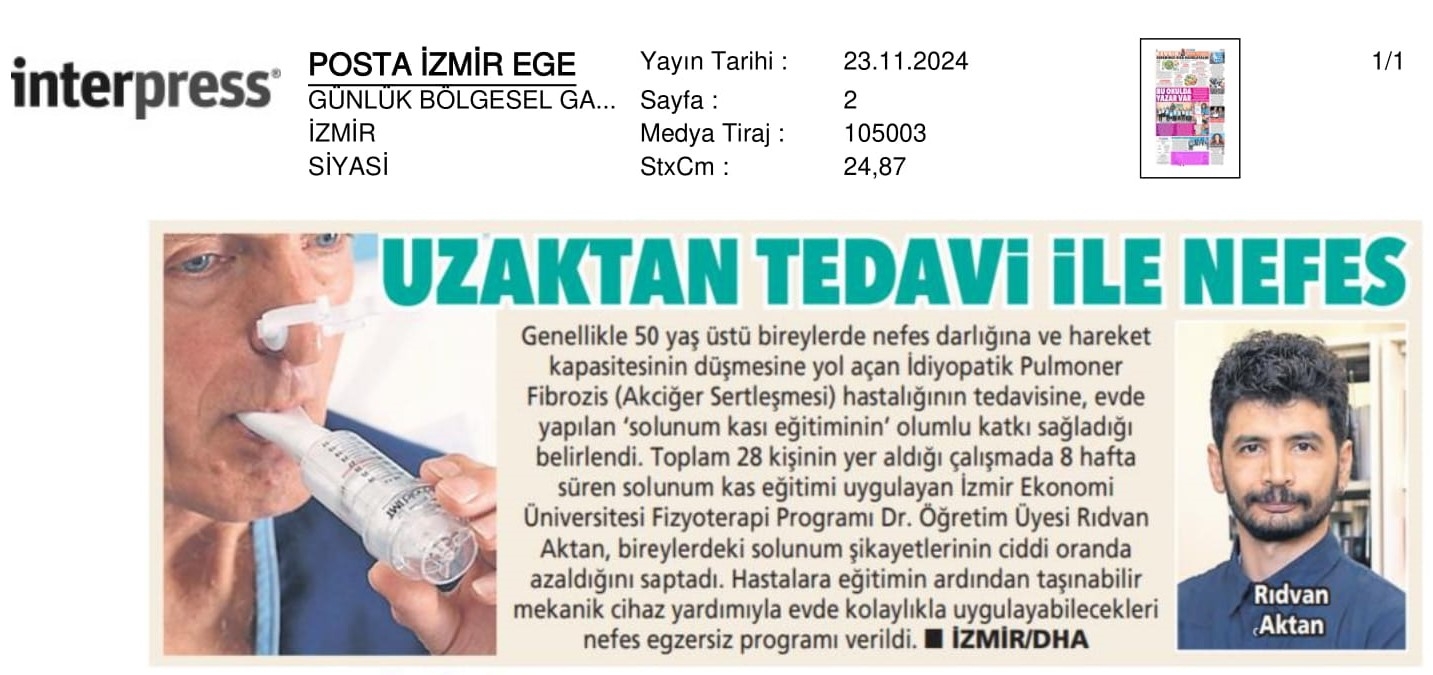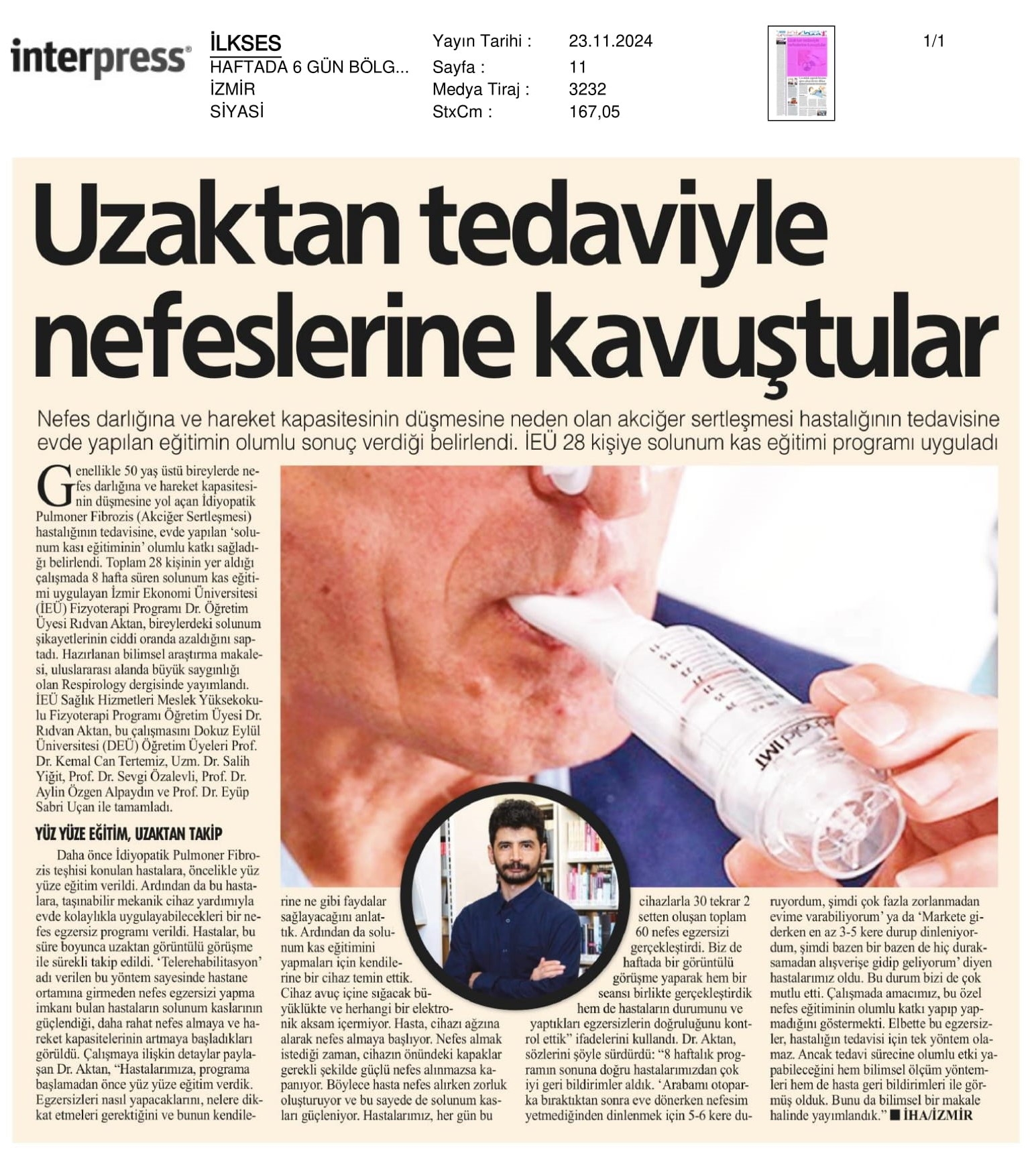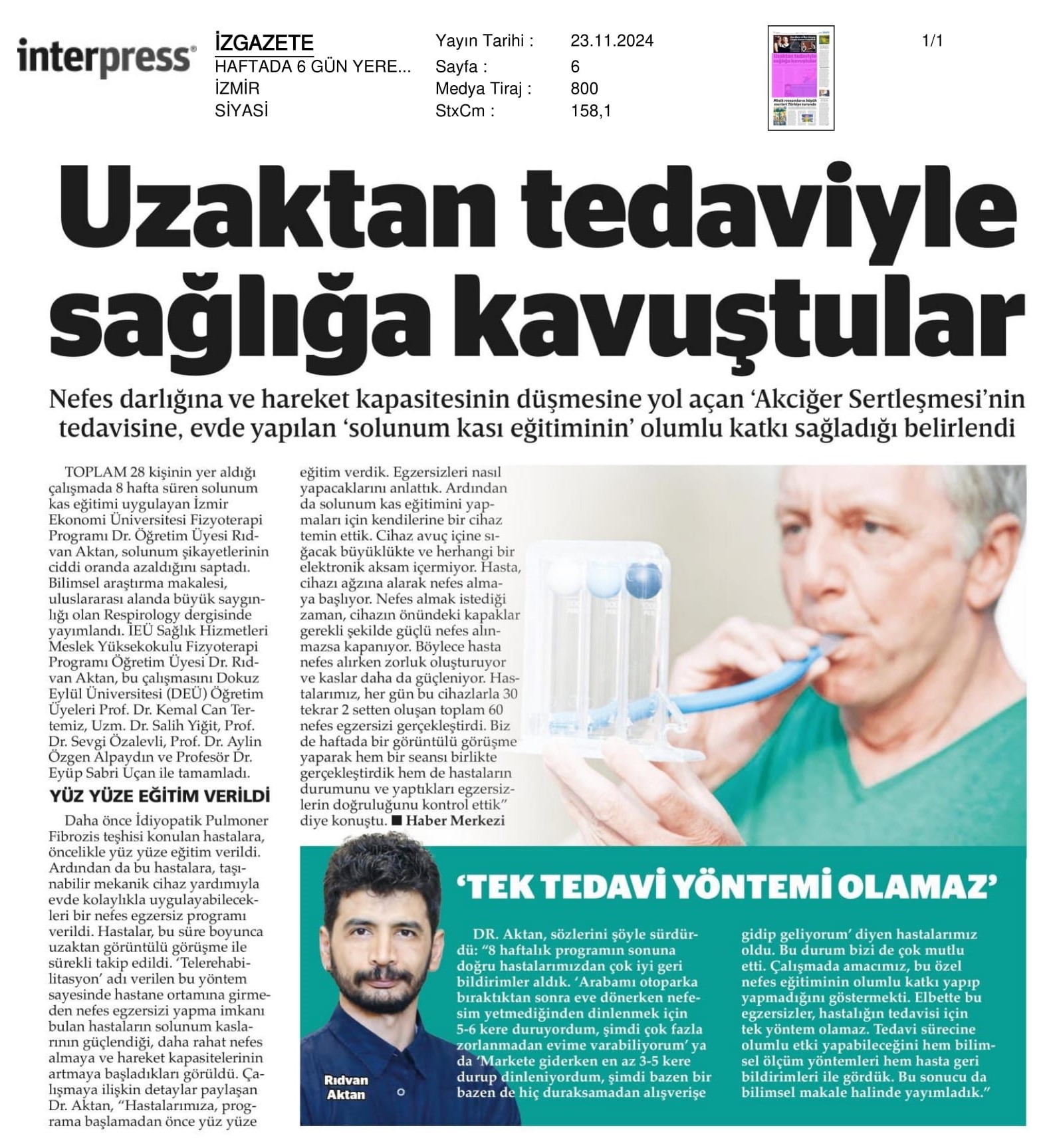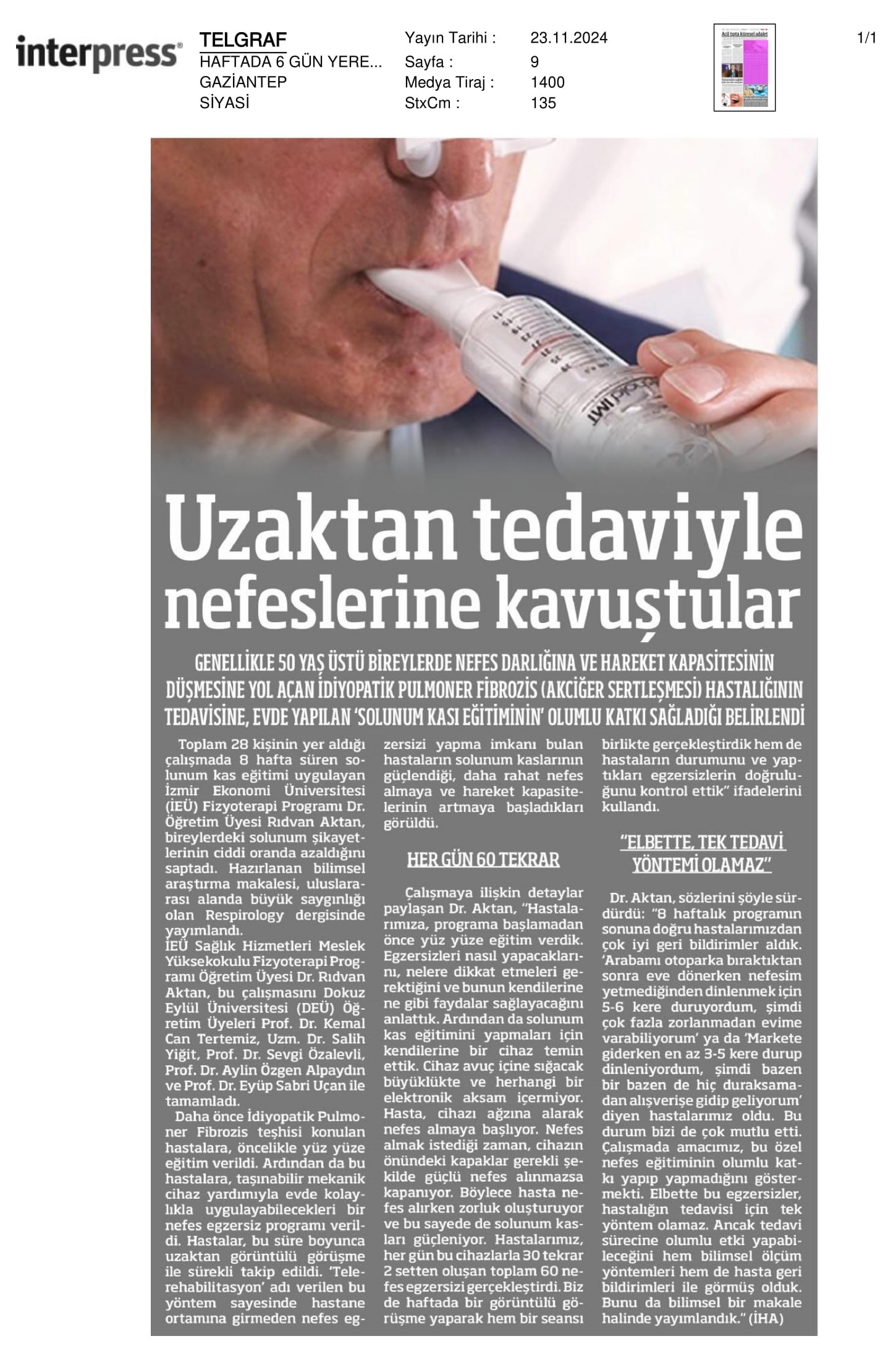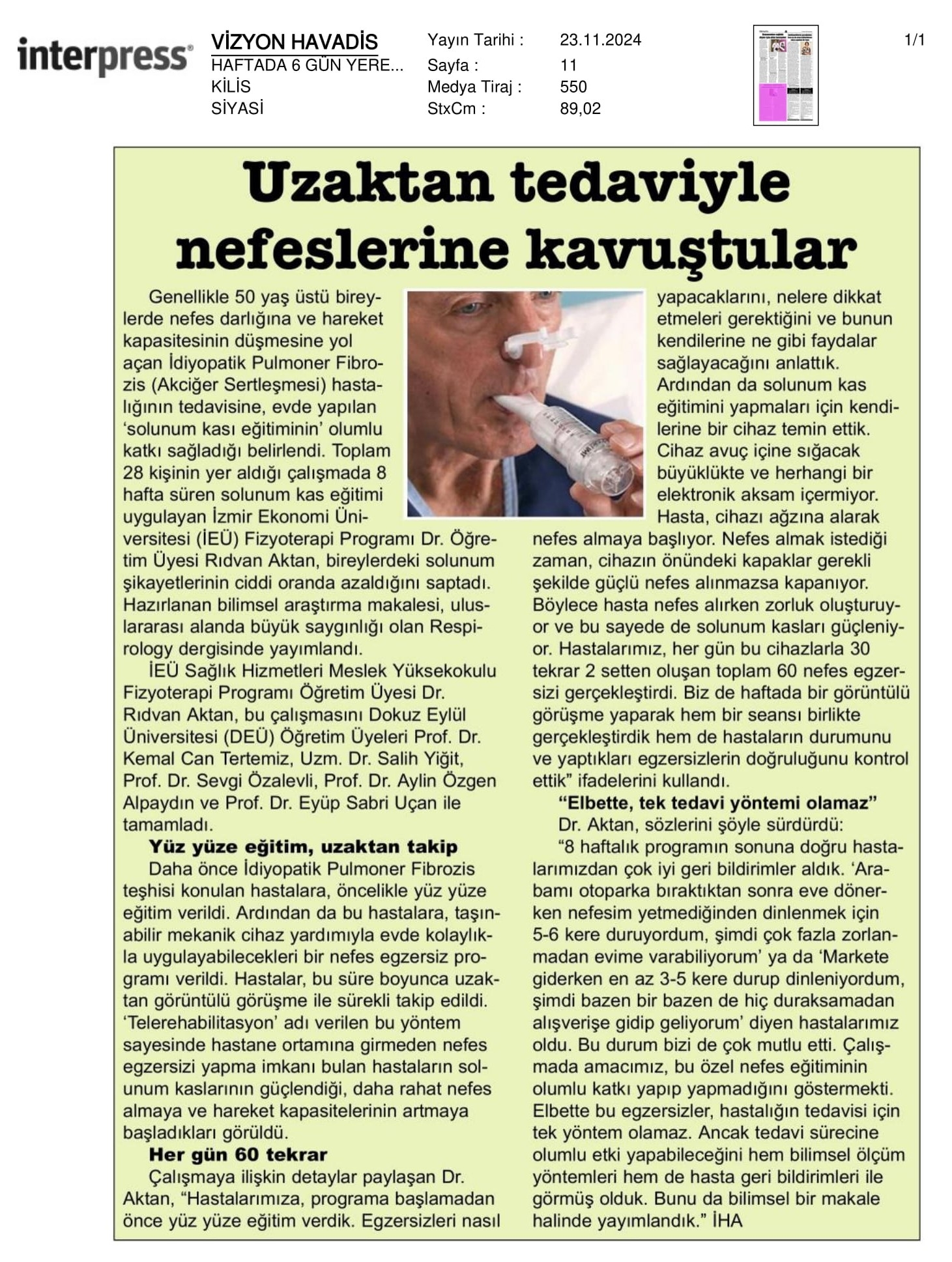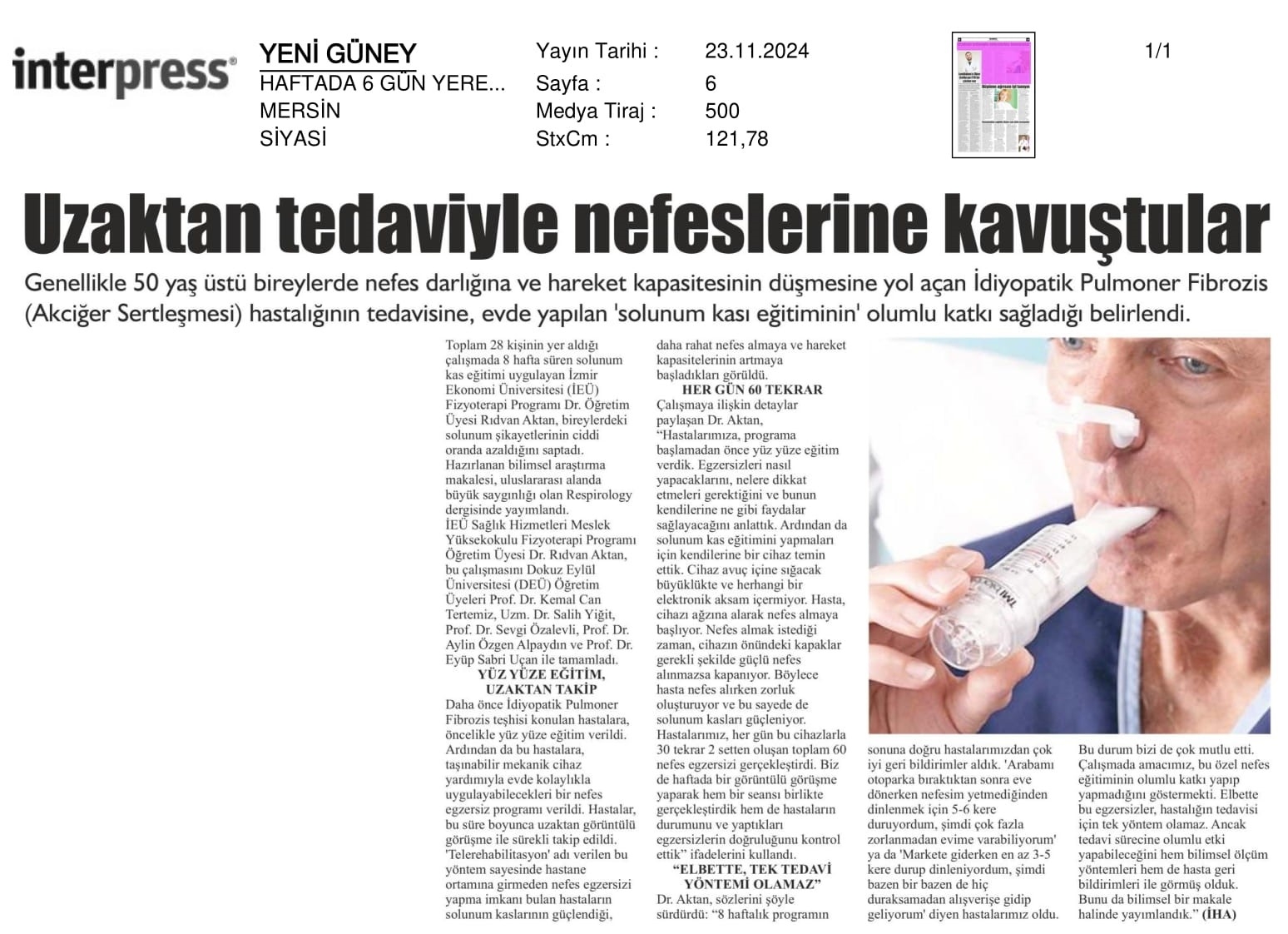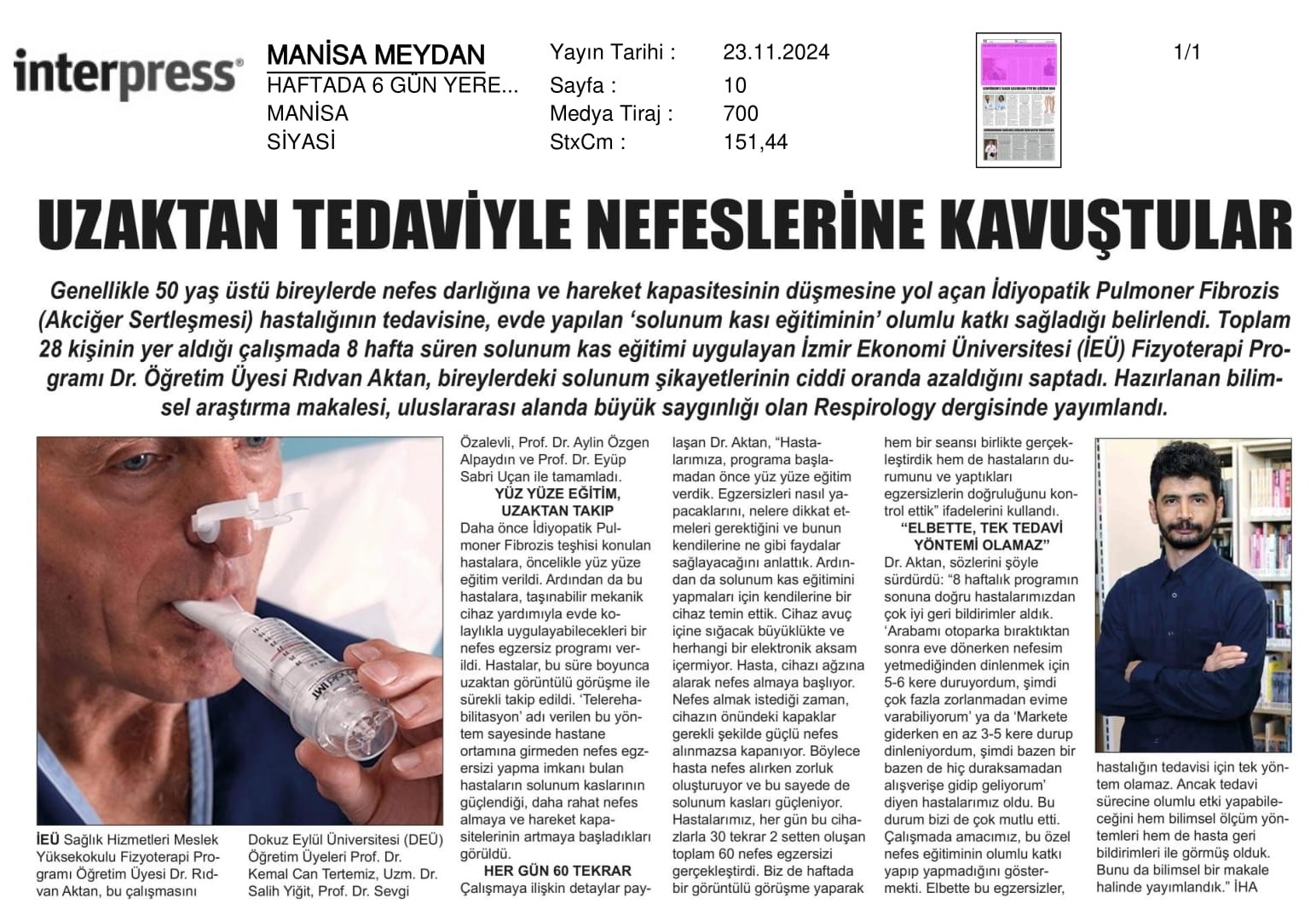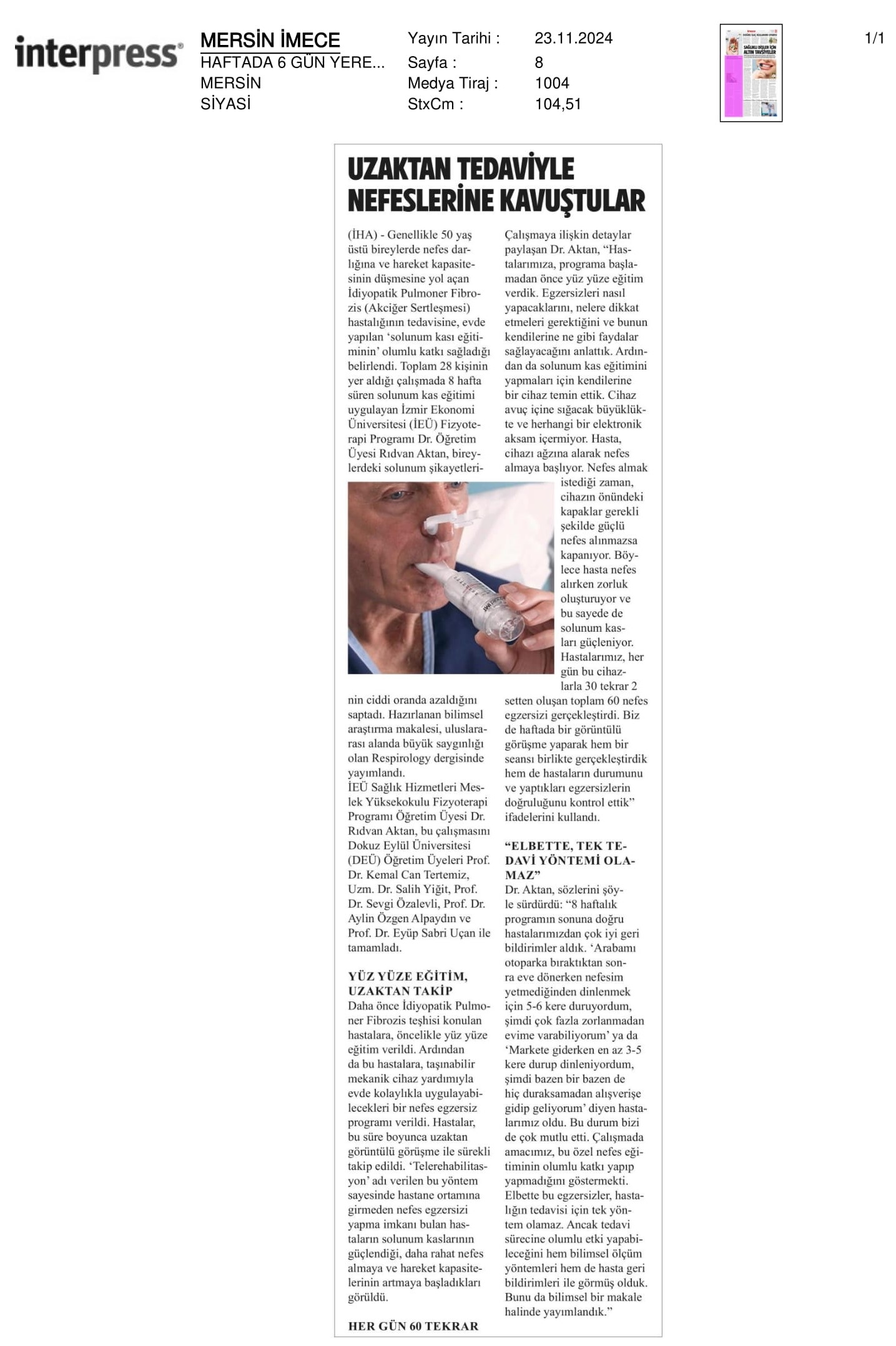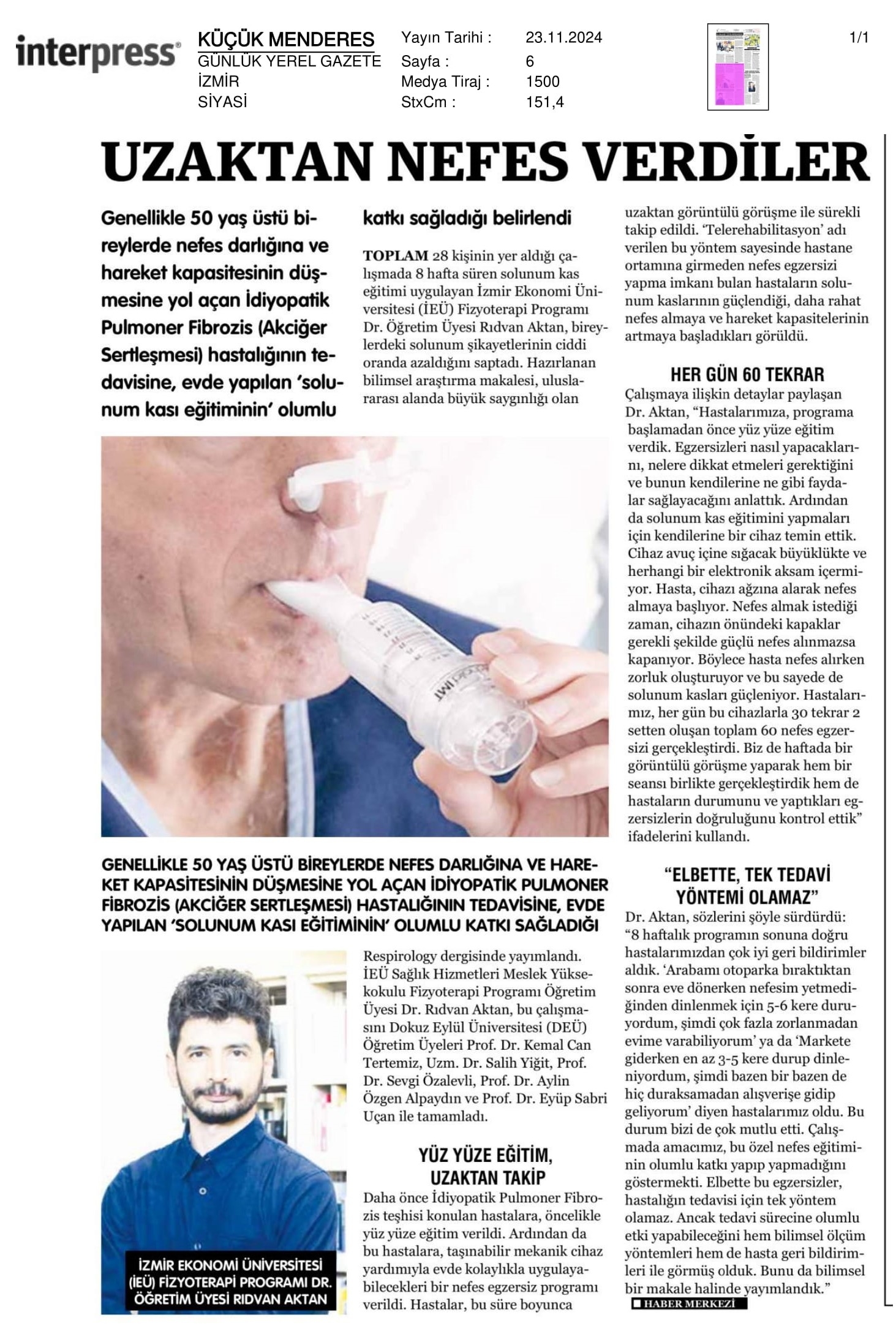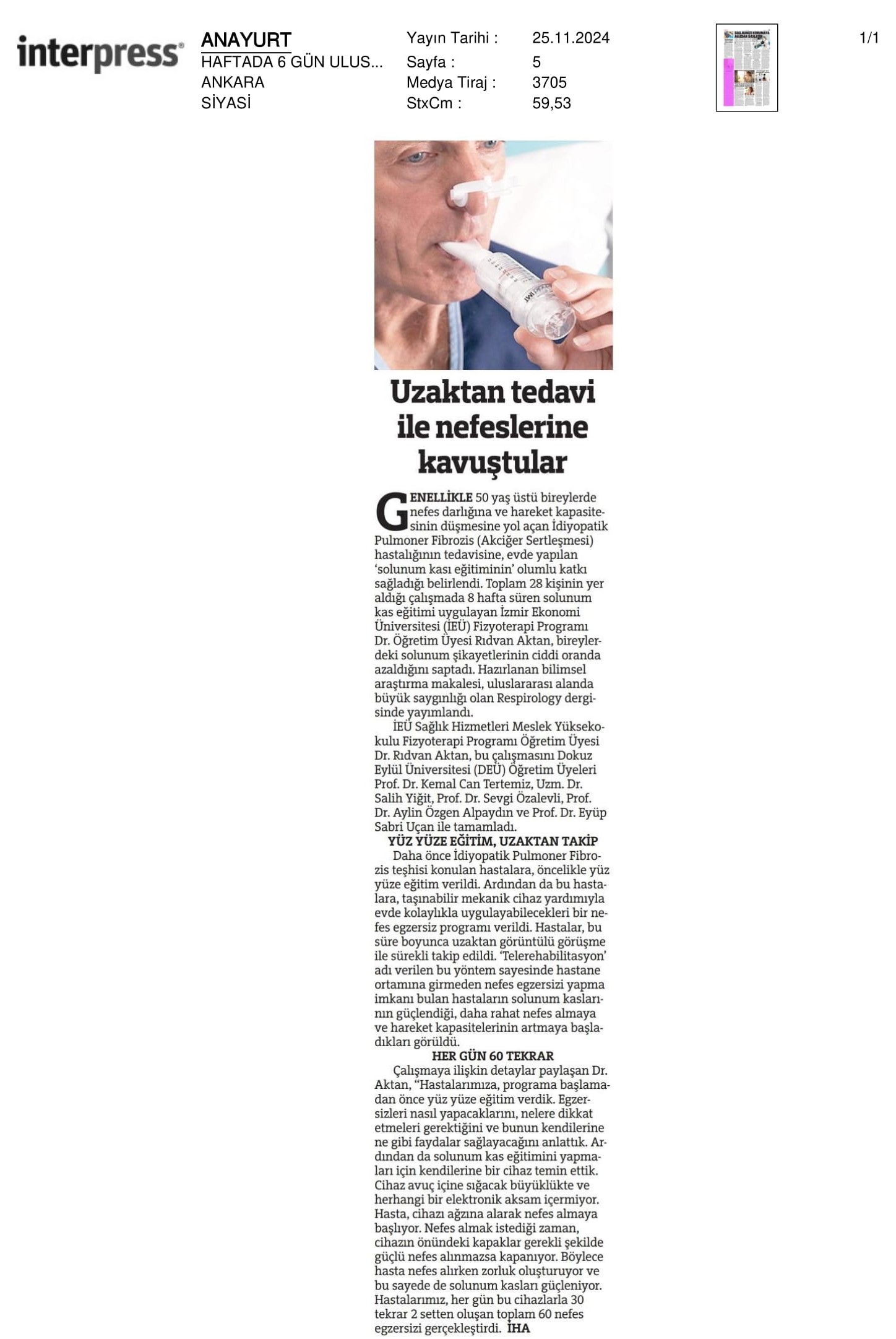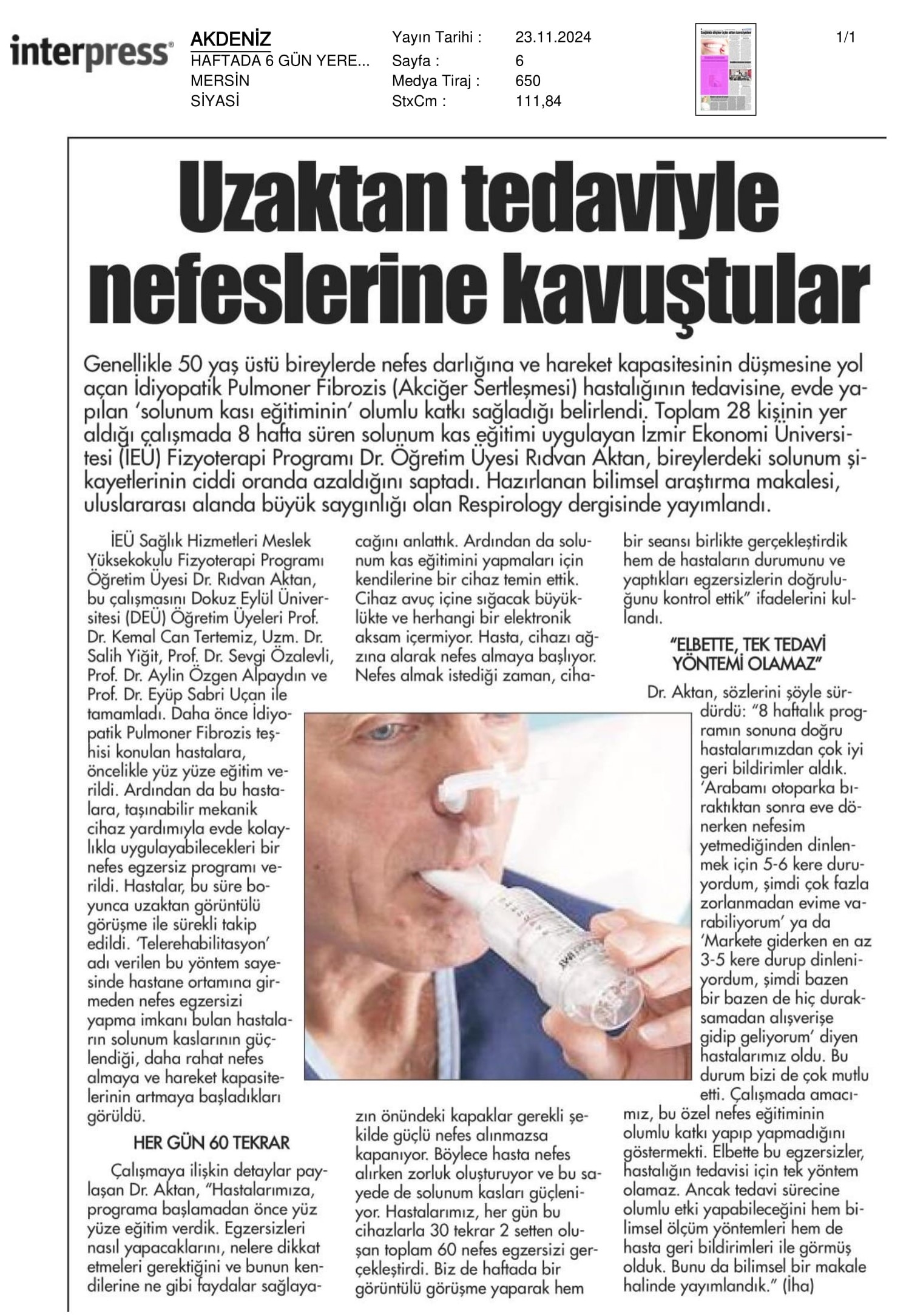Remote treatment results in success
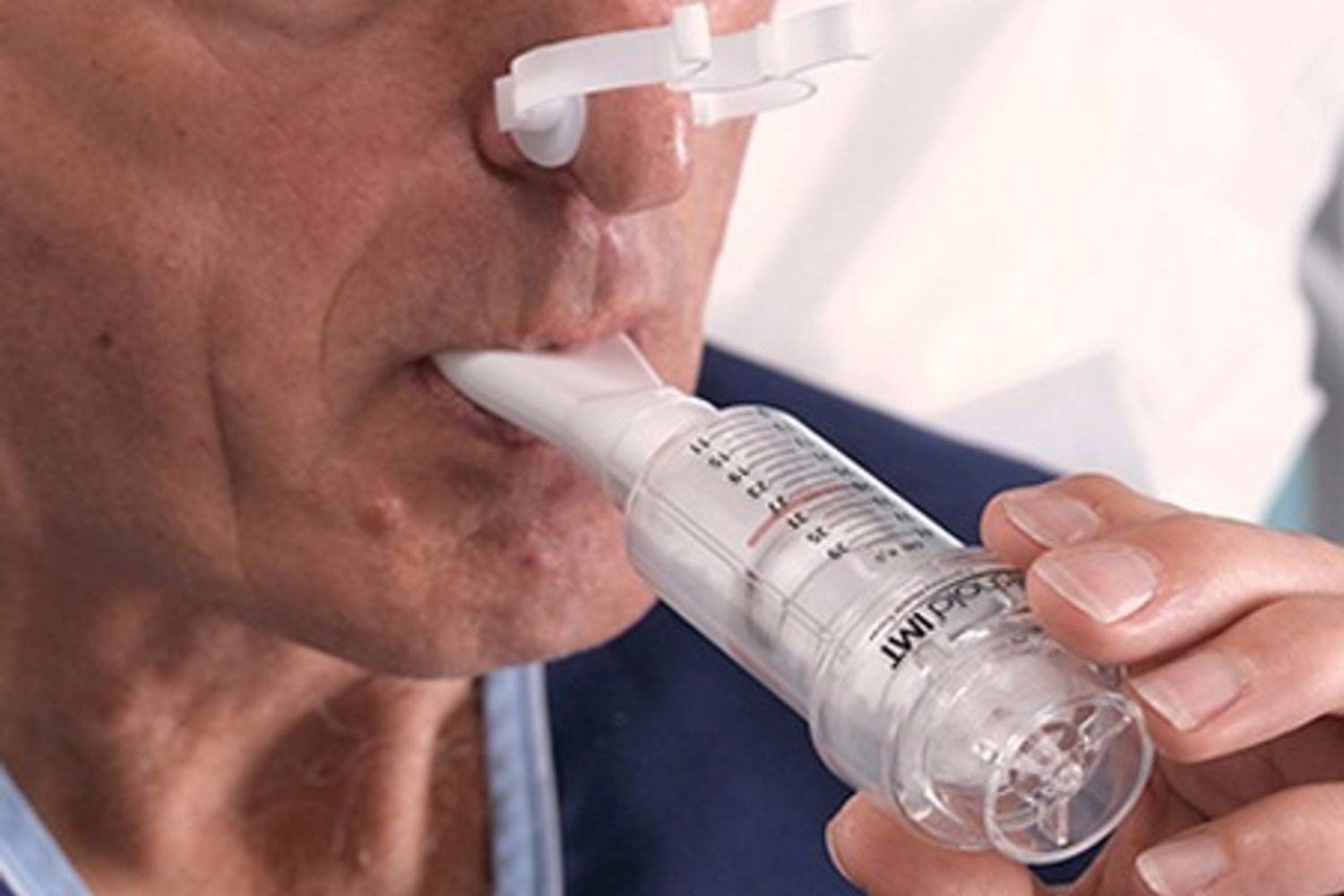
A study has shown that ‘respiratory muscle training’ performed at home significantly benefits individuals suffering from Idiopathic Pulmonary Fibrosis (IPF), a condition that typically affects individuals over 50 years old, causing shortness of breath and reduced physical capacity. The research, conducted by Asst. Prof. Dr. Rıdvan Aktan from Izmir University of Economics (IUE) Physiotherapy Program, involved 28 participants and revealed a notable reduction in breathing difficulties after eight weeks of respiratory muscle training. The findings were published in the prestigious international journal Respirology.
Asst. Prof. Dr. Rıdvan Aktan completed this study with faculty members from Dokuz Eylül University (DEU), including Prof. Dr. Kemal Can Tertemiz, Dr. Salih Yiğit, Prof. Dr. Sevgi Özalevli, Prof. Dr. Aylin Özgen Alpaydın, and Prof. Dr. Eyüp Sabri Uçan.
IN-PERSON TRAINING, REMOTE MONITORING
Patients previously diagnosed with IPF first received in-person training. They were then provided with a portable mechanical device to perform a respiratory exercise program at home. Throughout the program, patients were monitored remotely via video calls, using a method called ‘telerehabilitation’. This approach allowed patients to strengthen their respiratory muscles and improve breathing capacity without visiting a hospital.
60 REPETITIONS DAILY
Sharing details of the study, Asst. Prof. Dr. Aktan said, “Before starting the program, we provided patients with in-person training. We taught them how to perform the exercises, what to pay attention to, and how these exercises could benefit them. Then, we supplied each participant with a handheld, non-electronic device for respiratory muscle training. Patients would place the device in their mouth and begin to inhale. If the inhalation is not strong enough, a mechanism in the device would block airflow, forcing them to exert more effort. This resistance helped to strengthen their respiratory muscles. Each day, patients performed two sets of 30 repetitions, for a total of 60 exercises. We conducted weekly video sessions to monitor their progress, guide them through a session, and ensure they were performing the exercises correctly.”
“NOT A STANDALONE CURE”
Asst. Prof. Dr. Aktan continued as follows: “Toward the end of the eight-week program, we received very positive feedback. Patients shared comments like, ‘Previously, I had to stop 5–6 times to rest while walking home from the parking lot; now I can make it home without much difficulty’, or ‘I used to take multiple breaks while shopping, but now I can finish my errands with little or no need to stop’. These improvements made us very happy. Our primary goal was to demonstrate the positive impact of this specific respiratory training. While these exercises are not a standalone cure for IPF, they can complement treatment by providing measurable improvements, supported by scientific methods and patient feedback. We have documented our findings in a scientific article.”



